In My Sporting Hero, a new podcast series from Nutmeg, footballers talk about the athletes who inspire them. Sometimes those sportsmen and women are also footballers. Sometimes not. You can listen to the audio on this post, on the podcast app of your choice (just search for ‘My Sporting Hero’) or enjoy the written version below.
Our guest this time is Leanne Crichton.
Motherwell midfielder Leanne is one of the superstars of Scottish women’s football, having plied her trade at Hibs, Celtic, Glasgow City and Notts County, and appeared for the national team on 72 occasions. She is now a renowned broadcaster.
Leanne’s sporting hero is Steven Gerrard, Liverpool legend and the man who dragged the Reds into contention in the 2005 Champions League final, aka ‘The Miracle of Istanbul.’
I guess from the early noughties I was watching English football.
I remember Steven Gerrard’s highlights reels, I think he was wearing number 17 when he first broke onto the scene at Liverpool. He just looked too young to be on the stage that he was about to embark on, really raw. But I could relate to him because he reminded me of boys that I grew up playing football with. My older brother Colin at the time was an unbelievable footballer, as a kid and as a teenager, aged 14, 15. He just didn’t make it, for whatever reason, when it got to the crunch. The way Gerrard played reminded me of Colin, his attributes, and just how royal he was, and the power that he had, and I just loved him. Plus the fact that I was a midfielder too, and he wore Adidas boots. Those types of things as a kid were your kind of go-tos, you know, like Beckham wore Adidas boots, Gerrard then took on Adidas, so that was what everybody wanted. I pretty much wore Adidas Predators throughout my entire career. For a couple of seasons I think I switched to Nike, but other than that, for the most part, guys like that were the reason why I chose Adidas boots, as daft as that sounds.
I didn’t play for a team until I was 15, a girls’ team. I constantly played with the boys, and was on my brother’s case, constantly hanging out with him and his mates. Where we lived in Mount Vernon was perfect. There was a field right at the back of the houses where we lived. We lived in a nice estate, with loads of kids our age. We would play like 12, 13, 14 a-side, right through the summer holidays. Different types of games start to fine tune what you’re like as a player. I was never an out-and-out goal-scorer, I was probably not the best in a one-v-one defending situation, but I had a good engine, I could mix it for as long as I wanted, so I thought midfield is probably where it was going to be. When I went on to play for my first girls’ team, which was Cumbernauld Cosmos, I think I started off right-midfield, and then quite quickly moved centrally.
From early on I’ve been able to work out that I’m a leader in the sense that I’m more vocal than other players. I can speak and probably patrol that area and even on days when I’m not having my best game, I can influence it and try and help others have their best game. So being in the middle of the park certainly helped. I think I was number 10 at Cumbernauld, but basically when I went to Glasgow City, which is where I’ve had the best part of my career, I was number 8. When I went to Notts County, 8 wasn’t available, so I wore 18. I guess there’s that wee bit of superstition and something that just becomes part of your identity, so even that type of thing, the shirt number was influenced by him as well when he was playing at Liverpool.
He was a warrior and he was fearless and he had an arrogance. I lived in Nottingham when I played at Notts County, and I shared a club house. In the club house there was myself – a Glaswegian, one of the other girls was a Geordie, there was a Scouser, and there was a Londoner – a Southerner, so it was like the best mix of the UK in the one household. And the Geordie, the Scouser, and the Glaswegian were all very similar in the way that our humour was very similar, the way that we spoke, the fact that we’ve got our own type of vocabulary and language. There’s that connection as well, you could relate to his upbringing, his background, where he had come from, the things that he had to overcome living in a city like Liverpool where the opportunities weren’t always flourishing for young people but he managed to get himself to the top. And at times it can be easier to get to the top but the hardest thing is to stay there.
The football for me was the absolute standout because he was never by any means a flash footballer, he wasn’t one of the ones that would be front page of the newspapers. Growing up in Glasgow, newspapers were a part of my day. I would go to my gran’s before school and after school and at lunchtime, and you would have the Daily Record and in the afternoon read the Evening Times, but when you picked up those papers or any tabloids you were more likely to see the likes of David Beckham than Steven Gerrard. Two players operating at the same level, playing with top teams in England, competing at the highest level, both international superstars. But one delivered one type of headline more often than not, and the other was Steven Gerrard who you would only hear about when it was in football games.
Mourinho was always desperate to get him, and he never budged
Most players that played alongside him really value what he was all about. His reputation at a point at Liverpool was tarnished when he put in the transfer request. He was probably taking a bit of information from elsewhere about what his value was and what he should be getting in comparison to other players that he looked at and thought, “I’m better than him”. But also the silverware thing was an issue and Liverpool went through that phase. Obviously, they were such a successful team years before Steven Gerrard and they always looked like they were trying to get there, but they just fell at the last hurdle. So it’s unbelievable to think that in the career that he had, he had so little silverware in comparison to other players. But the amount of players that still come out to this day to praise him, the likes of Scholes and his England teammates. Mourinho was always desperate to get him and take him to wherever he was, and he never budged.
The finals or the Match of the Day highlights would have been as much coverage as I would have come across; you think now about phones and how much access we’ve got to social media and clips and moments. You can follow the journey of players 24/7. We didn’t have that back then, it was your Saturday night fix, it was your FA Cup final on TV, that type of thing. I guess I was across it, but probably not as much as we would have been had those games been playing out now. Go on YouTube now and you put in Steven Gerrard’s, say, best 30 goals and when you do a goal of the month competition you would honestly struggle to narrow it down to even a top 10 because there are so many. And when he was young, he was that player coming off the sidelines and right away grabs the game by the scruff of the neck and takes the ball and rifles it into the top corner. He goes away with the arms out, just embracing the crowd and that’s what I’m all about. That was his career, just littered with those types of moments. In big games as well.
I know a lot of young male players that suffer from issues with their knees and how quickly that growth spurt happens and then the muscles and joints struggle to keep up and that is really quite a common thing, you hear about it at youth academies and stuff. But thankfully that wasn’t anything that impacted me. When I was at Notts County, that was at the point that our women’s national team was really kicking on. I was there 2015 to 2017, and unfortunately the club was liquidated just before the start of the WSL season in 2017. But that was in the build-up to the women’s national team going to the Euros, which was our first major tournament that we qualified for, so that year for me was massive in terms of preparation and fitness levels and really kicking on. And I downloaded his audio book when I was down in Notts. So I did additional running during that two or three-month period in the build-up to the season. I just used to get out and pound the pavements at night, because you don’t have the same access to friends and family and other interests when you live away from home. So when the girls that I lived with would go off and do their own thing, I would just go out and train more, and I loved the audiobook, I loved just tuning into that, his career and his journey and going through it step by step. Speaking about his injuries and the types of things that he’d overcome. He had a really bad ankle injury, which he speaks about in great detail, and the point when he didn’t think he would play again after that. And I remember that really sticking with me, and he spoke about the consultant who he’d gone to see; there was a lot of concern and it was this ongoing issue, he was picking up bacterial infections. And the consultant says to him: “What if you never play football again, what will happen?” And you hear him speaking about his emotions and having to process that and it’s actually something that throughout my career and even in life I use now as a mechanism to process something that’s happening. So I can almost take myself to the worst-case scenario now just because of that bit of chat and listening to him and how important it was in his career. But honestly, the amount of running sessions that book got me through was brilliant. And because he motivates me, in listening to his career and everything that he achieved, it was the perfect timing in my career to tune into.
Now this is where there’s a real bit of shame comes in because I’m sitting here saying that Steven Gerrard is my sporting hero and there was a women’s national team game (on the night of the 2005 Champions League final). Don’t ask me who they played, that’s how insignificant it probably was. I feel like it was a friendly. And it was through in Perth, the same night as Istanbul. And there was a whole bunch of the girls going to the game. I was desperate to watch the final, though, but I think I’d written it off; “they probably won’t win” was the rationale. So I remember going to this game and I don’t even know what sort of updates I would have been getting on my phone back then because I’m not even sure there would have been an iPhone with any sort of app on it. But the score is filtering through, and they’re obviously losing, so I think it’s been a brilliant decision coming to this game, I knew this was going to happen. And as the game’s going on, I’m going, no way, no way. And I think we got back home in time for the penalties, and I thought, I cannot believe I had gone to a friendly – probably in the pouring rain as well! And honestly, that’s a game in moments and clips and highlights that I’ve watched on repeat and you see it every now and again, it gets rolled out on mainstream TV as well. The sports channels that are doing Steven Gerrard moments, that’s the go-to as well. But what an unbelievable night. You look at him and his career and he just gets it, you know, and that night in Istanbul at 3-0 it probably would have been easy just to be thankful for the fact that you were there and you had given the fans the journey to get there. But that wasn’t enough. To then have the ability to go and do what he was able to do in a short period of time. Even the header. He was never famous for headers, he was strong in the air, centrally in the pitch he would dominate, but when you look at his top-30 goals on YouTube, there’s not too many headers in there. He just found that little bit extra that night, and I think he got it because the fans were there, and you see that in the celebration, when he gets the ball it’s “Let’s go!”. There’s so much emotion attached to it, it actually gives me goosebumps when I think about it, because there’s been glimpses in my career but we, women’s football, we’ve never had that type of fan support behind us. The Euros and the World Cup kind of scratches the surface, but when it’s a club team, and it’s where you’re from, that feeling must be unbelievable to have to deliver for those people, and to feel that pressure. Actually, for me as a player, I love the pressure. So it resonates with me when I try and think about how he was feeling when he scores… what you would give to be in his shoes just for that split-second.
I’m sure he finished up at right-back in the game, he literally was all over the pitch and then I’m sure he ends up playing right-back, whether that was just doubling up or not. I’ve got a feeling positionally there was a change made and he had to go there. I could be wrong, but he was everywhere, he covered every blade of grass. Any moment that he felt a teammate was down and out as time went on, struggling with cramp, he would cover that space and his energy levels were unbelievable. In that moment, probably the adrenaline, I guess, would have been what took him through. And I can only imagine, again, what the team-talk would have been like at half-time, and how he would have had to pick up a lot of those bodies in the dressing room that felt they had let him down as well, because you can never get away from the fact that Liverpool, for that period of time, was solely focused on Steven Gerrard, the captain. That would have come with positives, but there certainly would have been a lot of negatives as well. Because the players, I think, almost felt like they were striving to win European trophies and Premier League trophies not just for themselves, but for Steven Gerrard.
The goal against West Ham in the FA Cup final was another standout and probably one that sticks more in my mind because he was probably right bang in the peak of his career and he was playing some of the best football. And again, it’s one that I think we revisit an awful lot. His goal against Olympiakos in that Champions League run as well. Just so many nights and just so many goals. It’s the celebration after that sticks with me more than the goal at times. Because you’ve come from behind in a game, or you’ve drawn level in a game, or it’s a last-minute winner. It didn’t feel like a normal goal, mostly, like Liverpool have been on Easy Street… it was always as though there was a story associated with some of his best.
We’re invested as fans on the outside, watching English football. Like I’m saying, everybody gets caught up in the hysteria of Steven Gerrard, Liverpool captain, can they win a Premier League before he retires? Will this be the year that Liverpool go on and prove everything that Steven Gerrard is about? I struggle to try and process how he would have felt in that moment (when he slipped to let Chelsea score in 2014). Listening to the audiobook was good, when he explains how he felt after it and basically having to just leave the country, and being unable to process what had happened. You feel the responsibility and as much as people go: “Look, there’s been numerous moments over the season, it’s not that slip that’s cost us the league. We dropped points here, we drew there, there’s been this, we should have won by more,” whatever it was. But when you’re that player in that moment, there’s nothing that anybody says is ever going to rationalise how you feel because you know you had control and you lost control and you handed it back to your opponents. It’s a shame, because for everything that you achieved in English football, the opposition fans would never let you live that down.
Even now when he’s in a coaching role, in his capacity as a manager. He’s probably enjoying a break from it actually, being in Saudi Arabia, the fact that he’s not getting hounded every week for it! But I had bought into the fact that that was going to be Liverpool’s year, and that that would be the year that Steven Gerrard would eventually lift the Premier League trophy. It wasn’t to be, but I guess, like most things in football and in life, everything happens for a reason. He probably deserved to, at some point, hang his boots up and have a Premier League winner’s medal in the cabinet. But I don’t know if he would have fully appreciated it when he got there, I think the next steps in your life beyond your playing career, it probably puts a lot of things into perspective that some things are just not meant to be. When you think about it, the fact is that Liverpool didn’t have the investment that other teams did in England at that point. But just a phenomenal player though, what a joy to watch.
Gerrard coming to manage Rangers was brilliant for the Scottish game. I just thought of the profile that it brought. Any player or manager will divide opinion, but I think his profile and the fact he was a young manager meant he was given that opportunity. He embraced everything that Rangers and Scottish football were about. A lot of former England players wouldn’t have done the same thing because they don’t view Scottish football as even a stepping stone, which for him it was. We know he was coming to Scotland to probably make mistakes and look to try and spread his wings as a manager, and do it with a bit less pressure and profile than English football would have certainly offered him had he gone straight into a hotseat down there. I never spent any one-to-one time with him. I did meet Gary McAllister a couple of times and spent a fair bit of time with him. I actually met him recently over at the Euros again. He was another who was phenomenal for Liverpool. He joined Liverpool at a certain point in his career and played alongside “young guys” like Steven Gerrard who had it all to prove, and for me that was so motivational, especially because they were both midfielders.
You look at the point at which he came in and the job that he had to do and also the pressure that came with stopping ten-in-a-row, which in the west of Scotland we’re obsessed by. I don’t know what’ll happen if either side of the Old Firm gets it, I don’t know if the world will just explode and end, or if they’ll just move on to what 11 might look like! During my whole childhood, growing up in the west of Scotland, in Glasgow in particular, that has been what consumes people. You know, Rangers and Celtic consumes people. And no disrespect to Rangers, but the players that Steven Gerrard worked with at the club were pretty average. Similarly, at times in his Liverpool career, they were average Liverpool teams, they were not the best teams in English football. He had to find a way to get the best out of those players and work with them and make them better. A lot of that, as a leader, is getting on a personal level with them, understanding what makes them tick, how do you get more out of them, how do you make them want to run through a brick wall for you? How do you get that buy in? How do you make them turn up to their work every day and enjoy being there and have a belief and a resilience that you can keep going? So those were all the types of things for me that I felt he must have been getting across to the team. There’s no getting away from the fact that people spoke an awful lot about Michael Beale and his influence on the pitch and how much he coached the team. I can put myself into Gerrard’s position now as a footballer with a career that spans 20-odd years - you don’t have an awful lot of time to be on the pitch coaching and when you come to the end of your career to then go into a coaching-management position, you don’t have the endless hours on a CV to say, I coached here and I coached there, because you’ve been playing the game. Steven Gerrard was the exact same. He had played the game at the highest level, he had worked with numerous world-class managers in different environments. That’s why he was employed as the Rangers manager, not because he was a brilliant coach. So he was a manager of people, and in that season, they certainly had the success. Only one trophy in that time, which in Scottish football would be viewed as probably not that successful. But the fact that he delivered the silverware which stopped Celtic’s quest for ten-in-a-row means he will be considered forever a great, I think, as a Rangers manager.
Would I take a job in Saudi Arabia? No. Would I go and work there based on my morals and values as a person? No. For me, that’s probably where the downfall comes when I view him now. Steven Gerrard, he’s gone against the grain with that, it was frowned upon by a lot of people. Jordan Henderson, again, another Liverpool great, went to Saudi Arabia, and a lot of people’s opinions changed. There was a lot of conflict and contradiction with their views throughout their careers when it came to that type of decision. So, I would like to see him back in the UK. Just because you’re a great player doesn’t mean that you’re going to be a great manager and at times I think that pressure can also weigh heavily. He might decide at some point he takes a bit of time out from the game and just chills out. I feel like he’s almost been consumed by football his entire life and he’s never had that break. But he’s a character and I think he’s someone that we’ve all kind of grown up with and certainly enjoyed watching and for me listening to as well. But I’ll probably hang more onto the fact that Steven Gerrard was an unbelievable player than his management career. That doesn’t quite get me going as much as the player.


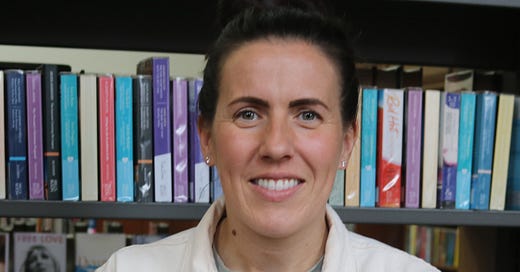


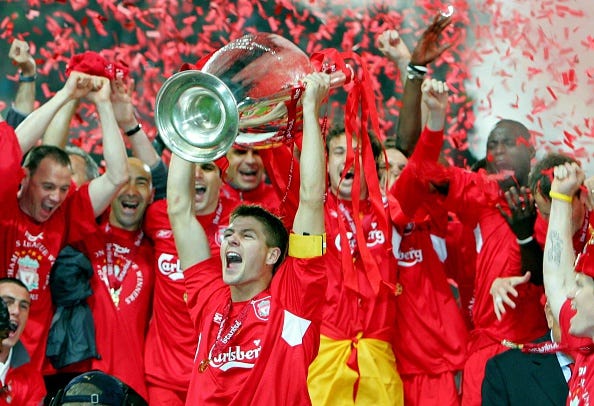
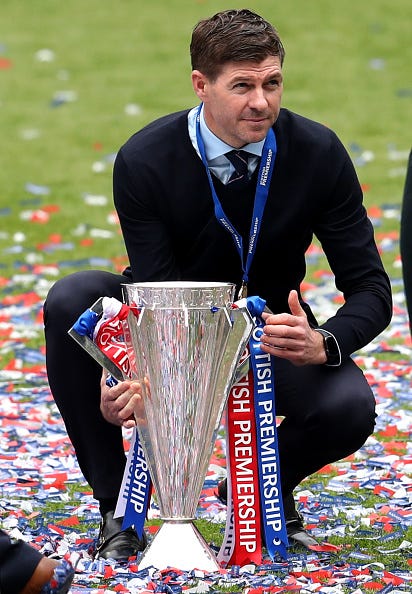
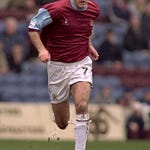
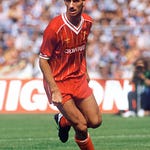






Share this post